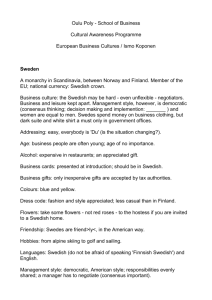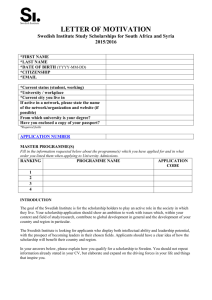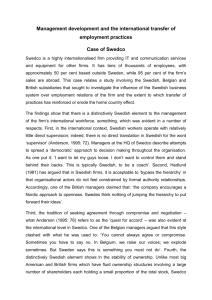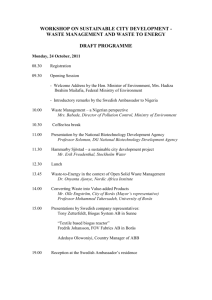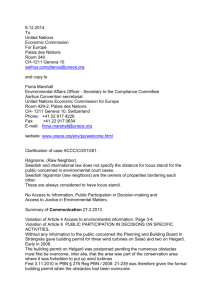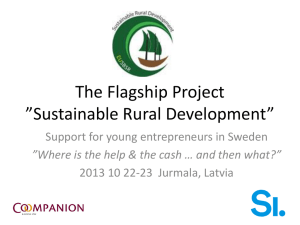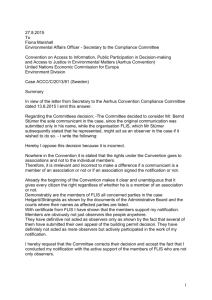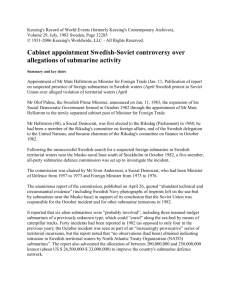SK1135, Swedish Politics in a Comparative Perspective, 15
advertisement
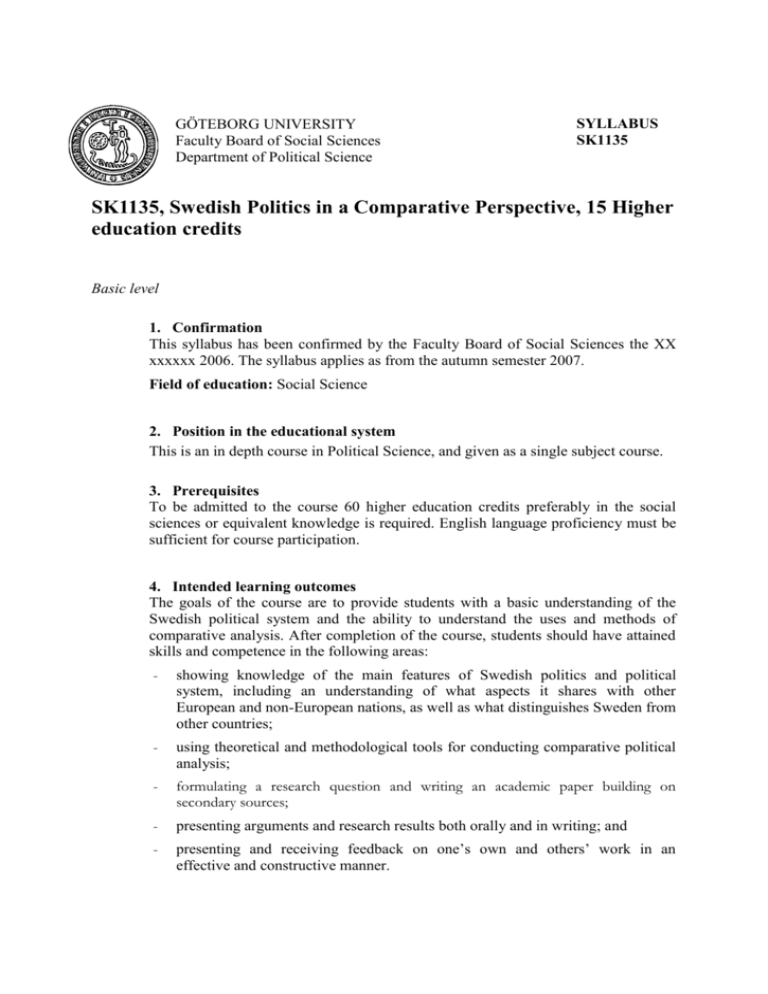
GÖTEBORG UNIVERSITY Faculty Board of Social Sciences Department of Political Science SYLLABUS SK1135 SK1135, Swedish Politics in a Comparative Perspective, 15 Higher education credits Basic level 1. Confirmation This syllabus has been confirmed by the Faculty Board of Social Sciences the XX xxxxxx 2006. The syllabus applies as from the autumn semester 2007. Field of education: Social Science 2. Position in the educational system This is an in depth course in Political Science, and given as a single subject course. 3. Prerequisites To be admitted to the course 60 higher education credits preferably in the social sciences or equivalent knowledge is required. English language proficiency must be sufficient for course participation. 4. Intended learning outcomes The goals of the course are to provide students with a basic understanding of the Swedish political system and the ability to understand the uses and methods of comparative analysis. After completion of the course, students should have attained skills and competence in the following areas: - showing knowledge of the main features of Swedish politics and political system, including an understanding of what aspects it shares with other European and non-European nations, as well as what distinguishes Sweden from other countries; - using theoretical and methodological tools for conducting comparative political analysis; - formulating a research question and writing an academic paper building on secondary sources; - presenting arguments and research results both orally and in writing; and - presenting and receiving feedback on one’s own and others’ work in an effective and constructive manner. 5. Course content The course consists of two pedagogically distinct parts, called Swedish Politics in Comparative Perspective I & II (7.5 higher education credits each). The first part builds on lectures and seminars, both geared toward developing students’ analytical and communication skills as well as knowledge of various aspects of the Swedish politics and political system. Topics include the Swedish constitution, Swedish representative democracy, state and local administration, characteristics of the Swedish ”welfare model” and gender politics, and environmental and labor policy, as well as more general knowledge regarding different ways to organize a state’s political life. The comparative perspective is emphasized during the course. In other words, it will be highlighted in what ways Swedish political system diverges from other countries. The second part of the course Swedish Politics in Comparative Perspective II builds on the knowledge base developed in the first but instead focuses on methodology and paper writing. With the help of an advisor, students write an academic paper, which includes the following components: formulating an appropriate topic, finding relevant sources, synthesizing and analyzing empirical and theoretical material, and organizing and communicating the results of analysis in both academic writing and an oral presentation. 6. Required reading List of required reading enclosed. 7. Student performance assessment Student performance is assessed through both oral and written exams. A student who has failed a test twice has the right to change examiner, unless weighty counter argument can be adduced. Applications shall be sent to the board of the institution. 8. Grading scale There is a three-level scale of grades; High pass, Pass, Fail. 9. Course evaluation Written (and where appropriate oral) course evaluation will be offered at the end of teaching (or where appropriate near the final exam). Evaluation results including relevant measures will be posted on the course website. 10. Additional information As a rule, the language of instruction is English.
